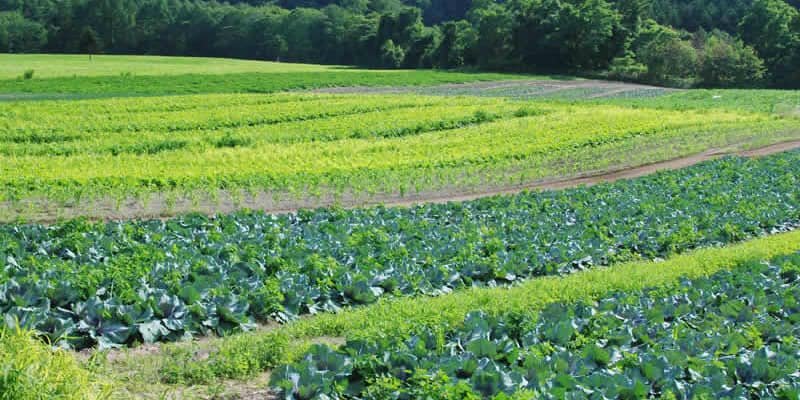Welcome to our comprehensive guide on crop farming! If you’re interested in learning about the ins and outs of cultivating crops, you’ve come to the right place. In this article, we’ll cover everything you need to know about crop farming, from choosing the right crops to harvesting and beyond. Let’s dive in!
1. Understanding Crop Farming: What You Need to Know
Crop farming, also known as agriculture, is the practice of cultivating plants for food, fiber, medicinal purposes, and other uses. It is a vital industry that plays a crucial role in feeding the world’s population and providing raw materials for various industries.
When it comes to crop farming, there are several key factors to consider:
- Climate: Different crops thrive in different climates. Understanding your local climate is essential for selecting the right crops to grow.
- Soil Quality: The quality of the soil affects crop growth and productivity. Conducting soil tests can help determine the suitability of your soil for specific crops.
- Water Availability: Adequate water supply is crucial for crop growth. Access to irrigation systems or reliable rainfall is necessary for successful crop farming.
- Market Demand: Before deciding on which crops to grow, it’s important to consider market demand. Growing crops that have a high demand can increase your chances of profitability.
- Equipment and Technology: Crop farming requires various tools and equipment, such as tractors, harvesters, and irrigation systems. Staying updated with the latest farming technologies can improve efficiency and productivity.
2. Selecting the Right Crops for Your Farm
Choosing the right crops for your farm is crucial for a successful harvest. Here are some factors to consider when selecting crops:
- Local Market Demand: Research the local market to identify crops that are in high demand. This can help you maximize your profits.
- Climate Suitability: Consider the climate in your region and choose crops that are well-suited to the local conditions.
- Soil Compatibility: Different crops have different soil requirements. Assess your soil’s fertility and pH levels to determine which crops will thrive.
- Personal Interest and Experience: Growing crops that you are passionate about or have experience with can make the farming process more enjoyable and rewarding.
3. Crop Farming Techniques and Best Practices
Successful crop farming requires implementing effective techniques and following best practices. Here are some tips to help you achieve optimal results:
- Crop Rotation: Rotate your crops annually to prevent soil depletion and reduce the risk of pests and diseases.
- Proper Irrigation: Ensure your crops receive adequate water by implementing efficient irrigation systems.
- Weed and Pest Control: Regularly monitor your crops for weeds and pests, and take appropriate measures to control them.
- Fertilization: Apply fertilizers based on soil test results to provide essential nutrients for your crops.
- Harvesting and Storage: Harvest your crops at the right time to ensure maximum yield and store them properly to maintain their quality.
4. FAQs on Crop Farming
Q: What are the benefits of crop farming?
A: Crop farming has numerous benefits, including:
- Providing food and raw materials for various industries
- Generating income and employment opportunities
- Contributing to rural development
- Preserving biodiversity
Q: How can I increase crop yield?
A: To increase crop yield, you can:
- Improve soil fertility through proper fertilization
- Implement efficient irrigation systems
- Control pests and diseases effectively
- Use high-quality seeds
Q: What are the challenges of crop farming?
A: Crop farming faces various challenges, including:
- Climate change and unpredictable weather patterns
- Pests and diseases
- Market fluctuations
- Access to capital and resources
5. Conclusion
Crop farming is a rewarding and essential practice that feeds the world’s population and fuels various industries. By understanding the key factors involved in crop farming, selecting the right crops, implementing effective techniques, and staying informed about market demand, you can increase your chances of success in this industry.
Fun Fact: Did you know that the world’s largest crop by production volume is maize (corn)? Maize is a staple food in many countries and is used in various industries, including animal feed, biofuel, and food processing.
Originally posted 2023-07-21 16:26:47.




